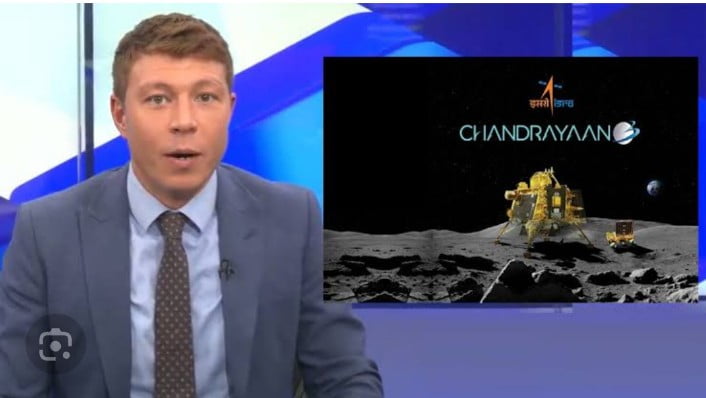An incendiary plea from a British anchor, urging India to reimburse the £2.3 billion in foreign aid extended by Britain between 2016 and 2021, has ignited a fierce backlash from online denizens. In a display of digital disapproval, netizens on the platform formerly known as Twitter, now “X,” swiftly countered the anchor’s proposal, demanding not only the Kohinoor gem but also the staggering $45 trillion, a sum believed to have been siphoned by Britain from India during its colonial dominion.
In an audacious proclamation lauding India’s lunar milestone, Patrick Christys of GB News ventured, “I would like to extend my felicitations to India for this remarkable achievement. Furthermore, I extend an overture to India, beckoning the return of the £2.3 billion foreign aid furnished during the period spanning 2016 to 2021. Subsequently, a sum of £57 million is poised for dispatch in the ensuing year. Shouldn’t the discerning British taxpayer retain such funds? The allocation of financial support to nations endowed with space programs exhibits a glaring incongruity. The prevailing norm dictates that supplication for assistance should desist if one possesses the means to propel a celestial vehicle to the obscure side of the lunar sphere.”
Employing the aegis of the United Nations to amplify his stance, the British anchor invoked India’s standing as the fifth-largest global economy, characterized by an annual GDP exceeding $3.75 trillion. He accentuated that India concurrently harbors the highest proportion of destitution. He pondered, “Why dispense monetary largesse to indigent Indians when their domestic governance is indifferent?”
The backlash against the British anchor resounded with vociferous demands for the restitution of the Kohinoor gem, an emblem of historical contention between Britain and India. Amid the chorus, focus was drawn to a rigorous study authored by economist Utsa Patnaik and published by Columbia University Press. This scholarly opus postulated that Britain’s colonial reign, spanning 1765 to 1938, witnessed an exodus of wealth totaling an astounding $44.6 trillion (£9.2 trillion).
In this heated digital discourse, the historical underpinnings of colonial appropriation clash with contemporary assertions of financial obligation, underscoring the complex entanglement of restitution, reconciliation, and restitution in the annals of geopolitical interaction.







